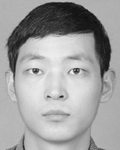Abstract:
Remote access to physical laboratories for education has received significant attention from both researchers and educators as it provides access at reduced cost in shari...Show MoreMetadata
Abstract:
Remote access to physical laboratories for education has received significant attention from both researchers and educators as it provides access at reduced cost in sharing manner of real devices and gives students practical training. With the rapid growing of wireless technologies, it has become an essential of learning to have the hand-on experience on wireless networking for the proliferated number of students in engineering. Some of current implementations for wireless networking are either using simulations, which lose the reality, or too complicated for undergraduate students to control experiments. In this paper, we present a practical online laboratory platform, Web-based WiFi Laboratory (WeFiLab). WeFiLab mainly focuses on providing students hand-on experience of doing experiments on real devices through webpage anytime anywhere. It uses the structure of two-level operations, which facilities increasing the scale of wireless devices and allows WeFiLab to be extended to more complicated operations. The schedule schemes of WeFiLab let more students share and make efficient use of wireless devices. A prototype of WeFiLab has been implemented and used successfully as complements for an undergraduate course for two years in a university. In total, 315 computer science students attended the evaluation.
Published in: IEEE Transactions on Learning Technologies ( Volume: 5, Issue: 4, Oct.-Dec. 2012)
DOI: 10.1109/TLT.2012.6

Department of Computer Science, City University of Hong Kong, Hong Kong, China
Lin Cui received the bachelor's degree from Shandong University in 2007, and the master's degree from Harbin Institute of Technology in 2009. He is currently working toward the PhD degree from the Department of computer Science, City University of Hong Kong. His general research interest falls in the area of mobile computing systems, wireless ad hoc/sensor network.
Lin Cui received the bachelor's degree from Shandong University in 2007, and the master's degree from Harbin Institute of Technology in 2009. He is currently working toward the PhD degree from the Department of computer Science, City University of Hong Kong. His general research interest falls in the area of mobile computing systems, wireless ad hoc/sensor network.View more

School of Computing Science, University of Glasgow, Glasgow, UK
Fung Po Tso received the BEng degree in computer engineering and the MPhil and PhD degrees in computer science from the City University of Hong Kong in 2005, 2007, and 2011, respectively. He is currently a SICSA research fellow in the School of Computing Science, University of Glasgow, United Kingdom. His research interests include cloud data center networks, mobile computing, distributed computing, and cyber-physical sys...Show More
Fung Po Tso received the BEng degree in computer engineering and the MPhil and PhD degrees in computer science from the City University of Hong Kong in 2005, 2007, and 2011, respectively. He is currently a SICSA research fellow in the School of Computing Science, University of Glasgow, United Kingdom. His research interests include cloud data center networks, mobile computing, distributed computing, and cyber-physical sys...View more

Department of Computer Science, City University of Hong Kong, Hong Kong, China
Di Yao received the BSc degree from the Northeast Dianli University in 2005 and the MSc degree from the National University of Defense Technology in 2008, respectively. She is currently working in the City University of Hong Kong as a research assistant. Her research interests include the design and applications of wireless sensor network systems, system performance measurement, and optimization. She is a student member o...Show More
Di Yao received the BSc degree from the Northeast Dianli University in 2005 and the MSc degree from the National University of Defense Technology in 2008, respectively. She is currently working in the City University of Hong Kong as a research assistant. Her research interests include the design and applications of wireless sensor network systems, system performance measurement, and optimization. She is a student member o...View more

Department of Computer Science, City University of Hong Kong, Hong Kong, China
Weijia Jia is currently a full professor in the Department of Computer Science and the director of the Future Networking Center, ShenZhen Research Institute, City University of Hong Kong. His research interests include next-generation wireless communication, protocols, and heterogeneous networks; distributed systems; and multicast and anycast QoS routing protocols. In these fields, he has a number of publications in prest...Show More
Weijia Jia is currently a full professor in the Department of Computer Science and the director of the Future Networking Center, ShenZhen Research Institute, City University of Hong Kong. His research interests include next-generation wireless communication, protocols, and heterogeneous networks; distributed systems; and multicast and anycast QoS routing protocols. In these fields, he has a number of publications in prest...View more

Department of Computer Science, City University of Hong Kong, Hong Kong, China
Lin Cui received the bachelor's degree from Shandong University in 2007, and the master's degree from Harbin Institute of Technology in 2009. He is currently working toward the PhD degree from the Department of computer Science, City University of Hong Kong. His general research interest falls in the area of mobile computing systems, wireless ad hoc/sensor network.
Lin Cui received the bachelor's degree from Shandong University in 2007, and the master's degree from Harbin Institute of Technology in 2009. He is currently working toward the PhD degree from the Department of computer Science, City University of Hong Kong. His general research interest falls in the area of mobile computing systems, wireless ad hoc/sensor network.View more

School of Computing Science, University of Glasgow, Glasgow, UK
Fung Po Tso received the BEng degree in computer engineering and the MPhil and PhD degrees in computer science from the City University of Hong Kong in 2005, 2007, and 2011, respectively. He is currently a SICSA research fellow in the School of Computing Science, University of Glasgow, United Kingdom. His research interests include cloud data center networks, mobile computing, distributed computing, and cyber-physical systems.
Fung Po Tso received the BEng degree in computer engineering and the MPhil and PhD degrees in computer science from the City University of Hong Kong in 2005, 2007, and 2011, respectively. He is currently a SICSA research fellow in the School of Computing Science, University of Glasgow, United Kingdom. His research interests include cloud data center networks, mobile computing, distributed computing, and cyber-physical systems.View more

Department of Computer Science, City University of Hong Kong, Hong Kong, China
Di Yao received the BSc degree from the Northeast Dianli University in 2005 and the MSc degree from the National University of Defense Technology in 2008, respectively. She is currently working in the City University of Hong Kong as a research assistant. Her research interests include the design and applications of wireless sensor network systems, system performance measurement, and optimization. She is a student member of the IEEE.
Di Yao received the BSc degree from the Northeast Dianli University in 2005 and the MSc degree from the National University of Defense Technology in 2008, respectively. She is currently working in the City University of Hong Kong as a research assistant. Her research interests include the design and applications of wireless sensor network systems, system performance measurement, and optimization. She is a student member of the IEEE.View more

Department of Computer Science, City University of Hong Kong, Hong Kong, China
Weijia Jia is currently a full professor in the Department of Computer Science and the director of the Future Networking Center, ShenZhen Research Institute, City University of Hong Kong. His research interests include next-generation wireless communication, protocols, and heterogeneous networks; distributed systems; and multicast and anycast QoS routing protocols. In these fields, he has a number of publications in prestigous international journals (IEEE Transactions on Networks, IEEE Transactions on Parallel and Distributed Computing, IEEE Transactions on Computers, IEEE Transactions on Mobile Computing), books/chapters, and refereed international conference proceedings (e.g., ACM CCS, WiSec, MobiHoc, SenSys, ICDCS, INFOCOM). He is senior member of the IEEE.
Weijia Jia is currently a full professor in the Department of Computer Science and the director of the Future Networking Center, ShenZhen Research Institute, City University of Hong Kong. His research interests include next-generation wireless communication, protocols, and heterogeneous networks; distributed systems; and multicast and anycast QoS routing protocols. In these fields, he has a number of publications in prestigous international journals (IEEE Transactions on Networks, IEEE Transactions on Parallel and Distributed Computing, IEEE Transactions on Computers, IEEE Transactions on Mobile Computing), books/chapters, and refereed international conference proceedings (e.g., ACM CCS, WiSec, MobiHoc, SenSys, ICDCS, INFOCOM). He is senior member of the IEEE.View more

